-
 Bitcoin
Bitcoin $88,575.4133
1.33% -
 Ethereum
Ethereum $1,623.1195
-0.94% -
 Tether USDt
Tether USDt $1.0000
0.01% -
 XRP
XRP $2.1040
-0.96% -
 BNB
BNB $605.9509
0.36% -
 Solana
Solana $139.9862
-0.01% -
 USDC
USDC $1.0000
0.00% -
 Dogecoin
Dogecoin $0.1637
1.09% -
 TRON
TRON $0.2482
1.98% -
 Cardano
Cardano $0.6392
-1.18% -
 Chainlink
Chainlink $13.3059
-1.43% -
 UNUS SED LEO
UNUS SED LEO $9.0739
-4.00% -
 Avalanche
Avalanche $20.1274
-2.31% -
 Stellar
Stellar $0.2484
-4.08% -
 Sui
Sui $2.3116
2.05% -
 Shiba Inu
Shiba Inu $0.0...01252
-0.73% -
 Toncoin
Toncoin $2.9119
-3.20% -
 Hedera
Hedera $0.1725
0.04% -
 Bitcoin Cash
Bitcoin Cash $346.0750
1.19% -
 Hyperliquid
Hyperliquid $18.2428
0.88% -
 Litecoin
Litecoin $79.3117
-2.01% -
 Polkadot
Polkadot $3.7471
-4.36% -
 Dai
Dai $1.0000
0.00% -
 Bitget Token
Bitget Token $4.4341
-0.56% -
 Ethena USDe
Ethena USDe $0.9992
0.00% -
 Pi
Pi $0.6353
0.33% -
 Monero
Monero $216.8188
0.48% -
 Pepe
Pepe $0.0...08105
3.48% -
 Uniswap
Uniswap $5.3764
-1.05% -
 OKB
OKB $51.0901
0.18%
How do ETFs track the prices of Bitcoin and Ethereum?
ETFs track Bitcoin and Ethereum prices using physical investments, synthetic instruments, and market dynamics influenced by institutional adoption and derivatives trading.
Feb 20, 2025 at 06:06 am

Key Points
How ETFs Track Bitcoin and Ethereum Prices:
- Physical ETFs
- Synthetic ETFs
- Institutional adoption and hedging
- Crypto derivatives
- Mining infrastructure
- Layer-2 scaling solutions
- Central bank digital currencies (CBDCs)
- Metaverse and Web3 integration
- Regulatory advancements
- Security and transparency enhancements
How ETFs Track the Prices of Bitcoin and Ethereum
1. Physical ETFs
Physical ETFs hold actual Bitcoin or Ethereum directly in their reserves. This method provides a physical backing for the ETF's value, ensuring that the ETF's price closely tracks the underlying cryptocurrency's price.
2. Synthetic ETFs
Synthetic ETFs do not hold physical Bitcoin or Ethereum but instead use financial instruments such as swaps or futures to replicate the price performance of the cryptocurrency. This method allows the ETF to avoid the operational complexities and storage risks associated with holding physical cryptocurrency.
3. Institutional Adoption and Hedging
Institutional investors, such as hedge funds and asset managers, contribute significantly to the demand for Bitcoin and Ethereum. They allocate funds to cryptocurrency-related investments, driving up the price. Hedging strategies, where institutions use derivative instruments to reduce risk, also influence the market dynamics.
4. Crypto Derivatives
Crypto derivatives, such as futures, options, and perpetual swaps, facilitate price discovery and increase liquidity in the cryptocurrency market. Traders and investors use these instruments to bet on future price movements and hedge risk, influencing the sentiment and price action of Bitcoin and Ethereum.
5. Mining Infrastructure
Mining pools, which provide the computational power to validate blockchain transactions, play a crucial role in securing and stabilizing the network. Improvements in mining efficiency and infrastructure can increase the accessibility and reliability of cryptocurrency, boosting investor confidence and driving up prices.
6. Layer-2 Scaling Solutions
Layer-2 scaling solutions, such as Lightning Network and Arbitrum, aim to improve the scalability and transaction speed of blockchain networks. By reducing transaction fees and increasing throughput, these solutions enhance the usability and affordability of cryptocurrency, potentially expanding adoption and increasing value.
7. Central Bank Digital Currencies (CBDCs)
Central banks and governments are actively exploring the development and issuance of CBDCs. These digital currencies could offer faster, cheaper, and more secure payment systems, reducing the need for intermediaries and potentially replacing traditional currencies in the future.
8. Metaverse and Web3 Integration
The metaverse, a virtual world powered by blockchain technology, and Web3, the next-generation internet, offer new opportunities for cryptocurrency adoption. Integration with these emerging technologies can expand use cases, increase utility, and drive demand for Bitcoin and Ethereum.
9. Regulatory Advancements
Regulatory clarity and standardization play a pivotal role in the growth of the cryptocurrency industry. Governments and regulatory bodies are developing frameworks to regulate cryptocurrency trading, custody, and taxation. Clear regulatory guidelines provide legitimacy, build trust, and attract institutional capital, positively impacting the prices of Bitcoin and Ethereum.
10. Security and Transparency Enhancements
As the cryptocurrency ecosystem matures, a focus on security and transparency is paramount. Implementations of multi-signature wallets, hardware security modules (HSMs), and blockchain analysis tools have strengthened the security of cryptocurrency storage and transactions. Transparent reporting and audits foster trust and confidence, bolstering the legitimacy and value of Bitcoin and Ethereum.
FAQs
1. What is an ETF?
An ETF (Exchange-Traded Fund) is a type of investment fund that tracks the price of an underlying asset, such as a commodity, index, or group of stocks. ETFs provide investors with exposure to the performance of the underlying asset without the need to buy and hold it directly.
2. How do I invest in Bitcoin or Ethereum ETFs?
You can invest in Bitcoin or Ethereum ETFs through a broker that offers access to these funds. To purchase an ETF, you will need to create a brokerage account, deposit funds, and place a buy order for the desired ETF.
3. Are Bitcoin or Ethereum ETFs risky?
All investments involve some level of risk, including Bitcoin or Ethereum ETFs. The price of cryptocurrencies can be volatile, and market conditions can impact the value of the ETF. It is important to conduct thorough research and understand the risks involved before investing.
4. Are Bitcoin or Ethereum ETFs insured?
The availability of insurance for Bitcoin or Ethereum ETFs depends on the specific ETF and the jurisdiction in which it is offered. Some ETFs may provide insurance against specific risks, such as theft or loss, but it is important to check with the ETF's prospectus and issuer for specific details.
Disclaimer:info@kdj.com
The information provided is not trading advice. kdj.com does not assume any responsibility for any investments made based on the information provided in this article. Cryptocurrencies are highly volatile and it is highly recommended that you invest with caution after thorough research!
If you believe that the content used on this website infringes your copyright, please contact us immediately (info@kdj.com) and we will delete it promptly.
- AVAX Price Prediction 2025: Will Avalanche Reach New Heights?
- 2025-04-22 17:50:12
- XRP Price Prediction Shows Bullish Momentum After Coinbase Lists Its Futures Contracts
- 2025-04-22 17:50:12
- Bitcoin is surging again, capturing the spotlight in the crypto world.
- 2025-04-22 17:45:12
- Pi Network (PI) Holds Above $0.63: $5 Price Prediction and Whale Accumulation Fuel Optimism
- 2025-04-22 17:45:12
- One of the cryptocurrencies that ranked in the eleventh place, Chainlink, has been in the spotlight as it is traded at $13.12
- 2025-04-22 17:40:12
- Pi Network's Token Structure Promises a Fair Launch
- 2025-04-22 17:40:12
Related knowledge
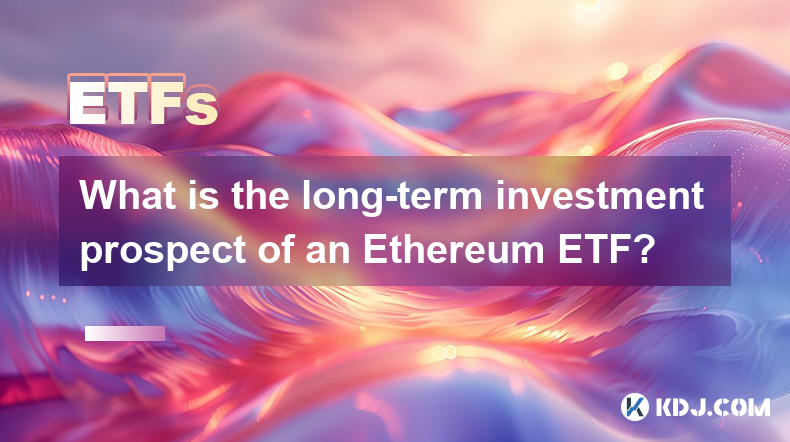
What is the long-term investment prospect of an Ethereum ETF?
Mar 18,2025 at 03:01pm
Key Points:Uncertainty surrounds the long-term prospects of an Ethereum ETF due to regulatory hurdles and market volatility.Approval hinges on regulatory clarity regarding cryptocurrencies, especially concerning investor protection and market manipulation.Successful ETF launches could boost Ethereum's price and adoption, but failure could negatively imp...
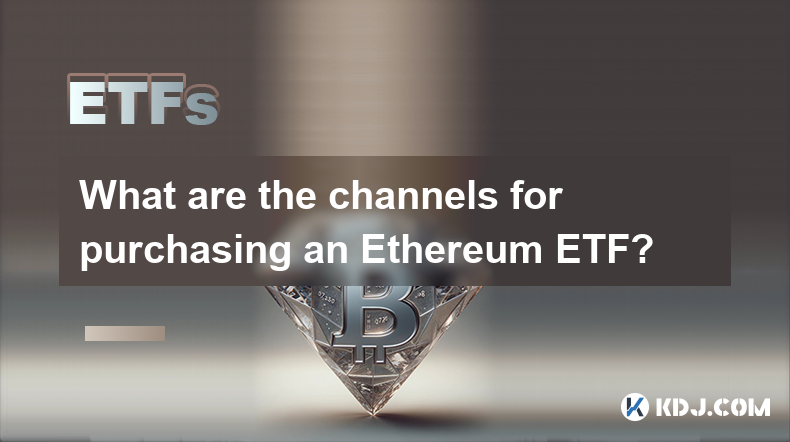
What are the channels for purchasing an Ethereum ETF?
Mar 18,2025 at 01:49am
Key Points:Currently, there are no Ethereum ETFs available for direct purchase by the general public in most major markets.Access to Ethereum exposure through ETFs is limited, mainly through futures-based ETFs.Purchasing Ethereum directly or through other investment vehicles remains a viable alternative.Regulatory hurdles and market complexities signifi...
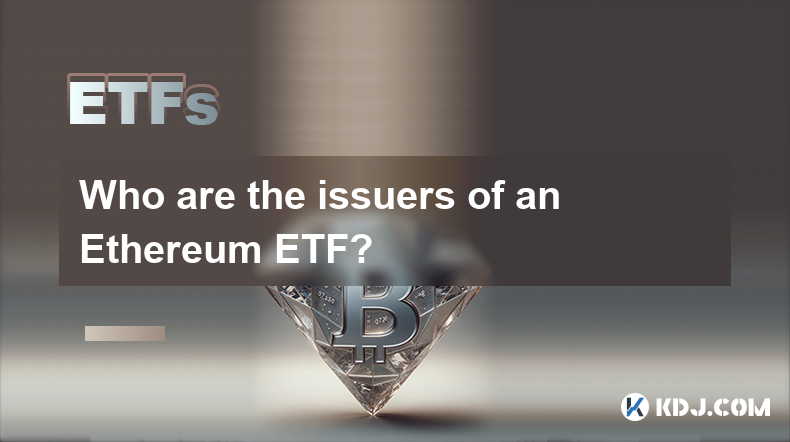
Who are the issuers of an Ethereum ETF?
Mar 19,2025 at 08:07pm
Key Points:There are no currently approved Ethereum ETFs in the US, meaning no single issuer can be definitively named. However, several firms have filed applications.The issuers of potential Ethereum ETFs will be large, established financial institutions, typically asset management companies.The specific requirements for ETF issuers are stringent and o...
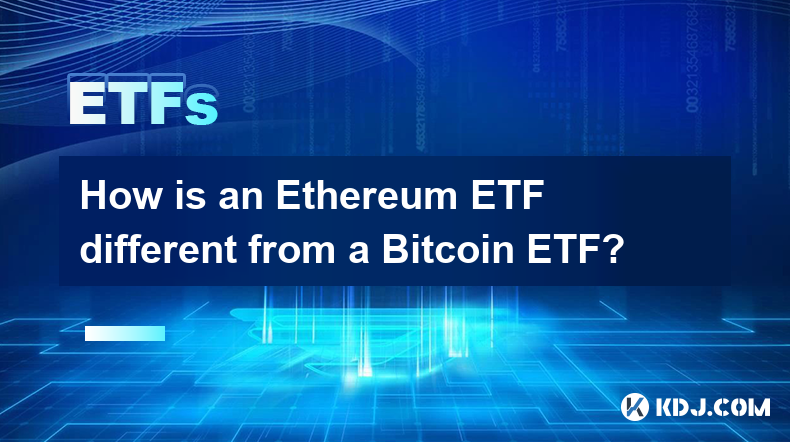
How is an Ethereum ETF different from a Bitcoin ETF?
Mar 17,2025 at 10:55am
Key Points:Underlying Asset: The core difference lies in the underlying asset: an Ethereum ETF tracks the price of Ether (ETH), while a Bitcoin ETF tracks the price of Bitcoin (BTC).Technology and Use Cases: Ethereum's blockchain supports smart contracts and decentralized applications (dApps), creating a distinct technological and investment narrative c...
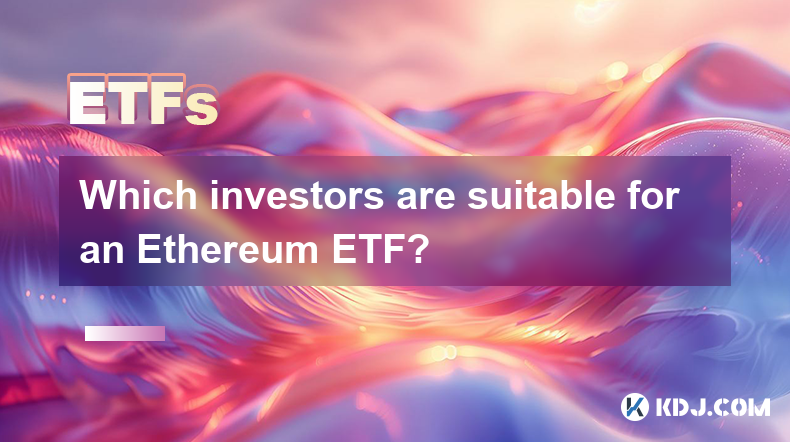
Which investors are suitable for an Ethereum ETF?
Mar 16,2025 at 05:50pm
Key Points:Risk Tolerance: Ethereum ETF investment requires a high risk tolerance due to the volatility of the cryptocurrency market.Investment Goals: Investors seeking long-term growth potential and exposure to the Ethereum ecosystem are suitable candidates.Investment Horizon: A longer-term investment horizon is crucial to weather market fluctuations.U...
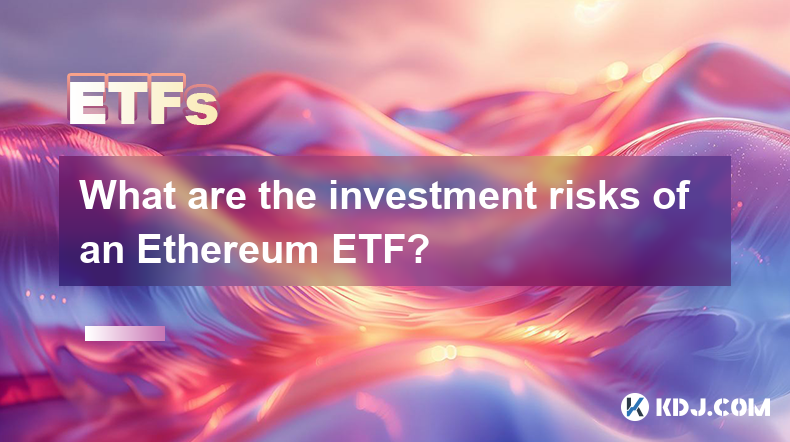
What are the investment risks of an Ethereum ETF?
Mar 18,2025 at 02:12am
Key Points:Price Volatility: Ethereum's price is highly volatile, impacting ETF share prices.Regulatory Uncertainty: Changes in regulatory landscapes can significantly affect ETF trading and performance.Market Manipulation: The potential for market manipulation, particularly in smaller ETFs, exists.Underlying Asset Risk: Risks associated with the Ethere...

What is the long-term investment prospect of an Ethereum ETF?
Mar 18,2025 at 03:01pm
Key Points:Uncertainty surrounds the long-term prospects of an Ethereum ETF due to regulatory hurdles and market volatility.Approval hinges on regulatory clarity regarding cryptocurrencies, especially concerning investor protection and market manipulation.Successful ETF launches could boost Ethereum's price and adoption, but failure could negatively imp...

What are the channels for purchasing an Ethereum ETF?
Mar 18,2025 at 01:49am
Key Points:Currently, there are no Ethereum ETFs available for direct purchase by the general public in most major markets.Access to Ethereum exposure through ETFs is limited, mainly through futures-based ETFs.Purchasing Ethereum directly or through other investment vehicles remains a viable alternative.Regulatory hurdles and market complexities signifi...

Who are the issuers of an Ethereum ETF?
Mar 19,2025 at 08:07pm
Key Points:There are no currently approved Ethereum ETFs in the US, meaning no single issuer can be definitively named. However, several firms have filed applications.The issuers of potential Ethereum ETFs will be large, established financial institutions, typically asset management companies.The specific requirements for ETF issuers are stringent and o...

How is an Ethereum ETF different from a Bitcoin ETF?
Mar 17,2025 at 10:55am
Key Points:Underlying Asset: The core difference lies in the underlying asset: an Ethereum ETF tracks the price of Ether (ETH), while a Bitcoin ETF tracks the price of Bitcoin (BTC).Technology and Use Cases: Ethereum's blockchain supports smart contracts and decentralized applications (dApps), creating a distinct technological and investment narrative c...

Which investors are suitable for an Ethereum ETF?
Mar 16,2025 at 05:50pm
Key Points:Risk Tolerance: Ethereum ETF investment requires a high risk tolerance due to the volatility of the cryptocurrency market.Investment Goals: Investors seeking long-term growth potential and exposure to the Ethereum ecosystem are suitable candidates.Investment Horizon: A longer-term investment horizon is crucial to weather market fluctuations.U...

What are the investment risks of an Ethereum ETF?
Mar 18,2025 at 02:12am
Key Points:Price Volatility: Ethereum's price is highly volatile, impacting ETF share prices.Regulatory Uncertainty: Changes in regulatory landscapes can significantly affect ETF trading and performance.Market Manipulation: The potential for market manipulation, particularly in smaller ETFs, exists.Underlying Asset Risk: Risks associated with the Ethere...
See all articles























































































